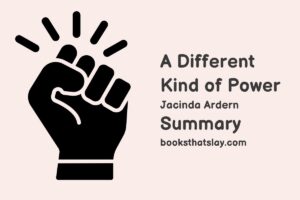1984 Summary and Key Themes
George Orwell’s “1984” is one of the most influential dystopian novels of the 20th century. It was published in 1949 and offers a grim vision of a future under total government surveillance and control.
Quick Summary: The book depicts a dystopian future under the oppressive totalitarian rule of the Party and Big Brother. Protagonist Winston Smith struggles against state control, seeking truth and rebellion, but faces relentless surveillance, manipulation, and betrayal in a society where truth is mutable in all forms.
Full Summary
The story is set in a superstate known as Oceania, which consists of present-day Britain (now renamed Airstrip One), the Americas, and other territories. The year is 1984, though the true date is uncertain due to the government’s manipulation of history.
Main Characters
- Winston Smith: The protagonist, a 39-year-old man who works at the Ministry of Truth altering historical records to fit the Party’s ever-changing narrative.
- Julia: Winston’s lover and fellow Party member who shares his disdain for the Party.
- O’Brien: A high-ranking member of the Party whom Winston believes is an ally, but who turns out to be deeply loyal to the Party.
- Big Brother: The leader of the Party. It is unclear whether he is a real person or a symbolic figurehead. His image is everywhere, accompanied by the slogan “BIG BROTHER IS WATCHING YOU.”
Plot
Daily Life in Oceania
The novel begins with Winston’s life in a dystopian society controlled by the Party. The Party suppresses all forms of personal expression and opposition, utilizing propaganda, censorship, and constant surveillance through telescreens. The Thought Police, a secret police force, punishes “thoughtcrime” — harboring any unorthodox or rebellious thoughts.
Winston’s Rebellion
Winston begins to harbor rebellious thoughts against the Party. He starts to write in a diary, an act of defiance, and begins an illicit affair with Julia. Together, they find solace in their shared hatred for the Party.
O’Brien’s Deception
Winston believes that O’Brien is also against the Party and wants to join the Brotherhood, a rumored underground resistance group. O’Brien gives Winston a book supposedly written by the Brotherhood’s leader, detailing the lies and control mechanisms of the Party.
Capture and Torture
Winston and Julia are betrayed and captured by the Thought Police. They are taken to the Ministry of Love, a misnomer, where they are subjected to psychological torture. Winston discovers that O’Brien is not a rebel but a loyal Party member who played a role in his capture. Through intense torture, O’Brien seeks to “re-educate” Winston and force him to love Big Brother.
Winston’s Breakdown
After enduring various forms of torture, Winston is taken to Room 101, where individuals face their worst fears. Confronted with a cage of hungry rats, Winston’s greatest fear, he betrays Julia by pleading for them to do it to her instead. This act symbolizes his complete surrender to the Party.
Grand Finale
After their release, Winston and Julia meet once more but feel nothing for each other. Their spirits and resistance have been broken. Winston spends his days at the Chestnut Tree Café, drinking Victory Gin, and has come to love Big Brother. The novel ends with the realization that the Party’s control over Oceania and its citizens is absolute.

Also Read: Lord of the Flies Summary and Key Lessons
Key Themes
1. The Danger of Allowing Unchecked Power and Authority
Centralization of Power
In “1984,” the Party has consolidated power to an extreme, creating a totalitarian state. It’s not just about having authority, but how that authority can erase individual freedoms, alter truths, and reshape reality.
The novel highlights the dangers of granting excessive power to a centralized governing body without any checks or balances.
This serves as a warning for societies to remain vigilant against the rise of authoritarianism, to ensure that democratic institutions are robust and that power is never concentrated in the hands of a few.
Manipulation of Information
With power and control over all information sources, the Party can alter the past, shape perceptions, and dictate “truths.” This demonstrates the significance of free press and the dangers of allowing any entity to control or monopolize the narrative.
The preservation of accurate historical records, diverse media outlets, and the ability to critically analyze information are paramount.
Reduction of Individuality
The suppression of individual thought and expression ensures the Party’s dominance. By taking away personal freedoms and enforcing conformity, the Party negates the essence of individual identity.
The lesson is that individuality and personal freedoms are fundamental human rights that must be defended vigorously. When these rights start eroding, the essence of what makes us human is at stake.
2. The Role of Language in Shaping Thought and Reality
Restriction of Language Equals Restriction of Thought
Newspeak, the official language in Oceania, is designed to limit the range of thought. By reducing words or altering their meanings, it becomes impossible to conceptualize rebellion or dissatisfaction. This showcases the power of language in framing our reality.
If one controls language, one can control thought and, subsequently, actions.
Manipulation of Truth
The manipulation and degradation of language in “1984” are tools for the Party to dictate what is “true” or “false.”
Phrases like “doublethink” and “blackwhite” illustrate how language can be used to enforce contradictory beliefs and eliminate logical reasoning.
The lesson here is to be cautious of linguistic manipulations in real-world propaganda and media that might serve hidden agendas.
Preservation of Authentic Communication
Authentic human connection becomes impossible without genuine language. When words lose their meaning or are forbidden, genuine relationships and trust become casualties.
The takeaway is the importance of preserving rich, nuanced languages and promoting open dialogues in society.
Also Read: The Seven Spiritual Laws of Success Summary and Key Lessons
3. The Importance of Memory, History, and Objective Truth
Memory as Resistance
Winston’s act of keeping a diary and his efforts to remember the past are forms of rebellion. Memory serves as a tool of resistance against the Party’s continuous revision of history.
This underscores the importance of personal and collective memory as bulwarks against manipulation and tyranny.
Erasure of History
The Party’s motto, “Who controls the past controls the future; who controls the present controls the past,” captures their strategy of manipulating history to maintain power.
When history is rewritten or erased, people lose their anchor to reality, making them malleable to any present narrative. This teaches the importance of maintaining accurate historical records and encouraging historical education.
Objective Truth Matters
In a world where facts are malleable and truth is relative, societies can be easily manipulated. The constant flux of “truth” in Oceania destabilizes residents’ grasp on reality.
The lesson is that societies need to prioritize the pursuit of objective truth, scientific inquiry, and critical thinking to ensure a grounded, shared reality.
Final Thoughts
“1984” is a warning about the dangers of unchecked power, the manipulation of truth, and the loss of individual freedoms. The novel’s relevance persists today, serving as a cautionary tale about the fragility of freedom and the dangers of complacency in the face of authoritarianism.
Read our other summaries


